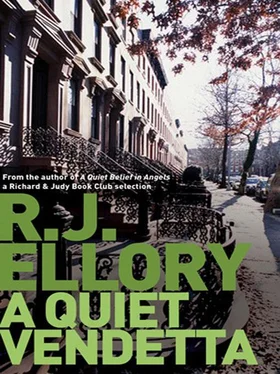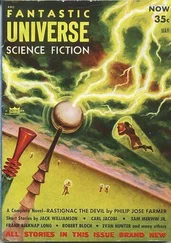Hartmann’s eyes visibly widened.
Perez nodded. ‘You have your own family to go back to, and I can imagine this whole affair has been somewhat of an inconvenience to you already.’
Hartmann didn’t speak. He thought again of his wife and daughter; he thought of their appointed meeting, and whether or not he would make it out of here in time. He felt once again the frustration of being brought to Orleans, of now being committed to staying, and all of this because of the man facing him.
‘You are a dedicated and patient man, Mr Hartmann. I understand the nature of the work you do, and the degree of commitment required to continue spending your days dealing with the sort of things you have to deal with. Perhaps you and I are more alike than you imagine.’
‘Alike?’ Hartmann asked, a tone of antagonism in his voice, antagonism towards not only the man himself, but the sheer nerve he possessed to make any kind of comparison between them. ‘How could you think we were alike?’
Perez leaned back and smiled, relaxed and unhurried. ‘The things we see, the things we know about, the sort of people that populate our lives. They are the same people, you know. You and I are walking along different sides of the same track, and though we might look at something from a different perspective we nevertheless are still looking at the same thing.’
‘I don’t-’ Hartmann started, a feeling of anger rising inside him.
‘Don’t what?’ Perez asked, and his tone was one of worldly knowing and self-assurance that Hartmann found not only unnerving, but galling beyond belief. Perez might indeed have seen the same things as him, might even have been directly or indirectly involved, but here, at least in this situation, Perez was entirely and effortlessly in control. Somehow – despite being the perpetrator of one of the most important federal cases Hartmann had been connected to – he had managed to walk in amongst them and wrest control. He had the upper hand; he knew he had it, and he was going to bet everything he owned on how his cards fell. Irrespective of whatever sense of self-possession Perez maintained, he was still capable of preventing Hartmann from seeing his family at the end of the week. For this, for this alone, Hartmann could feel nothing but anger, even hatred.
‘You don’t believe we share a similarity of nature and viewpoint, Mr Hartmann?’ Perez asked. ‘I can assure you right here and now that there is a very narrow dividing line between the path you have walked and the one I myself chose. A religious man would perhaps speak of the dualist concept, where for every part of man that could be considered good there is also an opposed and equal part that is evil. How a man turns is dependent solely upon the events and circumstances of his life, but I can guarantee you that there is no difference when it comes to ethical and moral standpoints.’
Hartmann shook his head. He did not understand what Perez was saying; perhaps his emotional reaction to this situation prevented him from wanting to understand the man.
‘Dependent upon the individual himself there is no difference between right and wrong. What I might consider right is entirely dependent upon what I consider to be the most constructive stance to take. The fact that you disagree with that stance doesn’t make you any more right than I. One man’s ceiling is another man’s floor. I believe that is a common saying here in the United States of America.’
‘But the law?’ Hartmann asked. ‘What you have done is a violation of the law.’ He heard the edge in his own voice, the same edge that would surface when he’d been drinking, when unacceptable circumstances had managed to invade his life and upset him.
‘What law would that be then, Mr Hartmann?’
‘The law established by the people.’
‘And what people would that be? Certainly not me. I never agreed to any such laws being established. Were you ever consulted? Did your government ever take the time to ask you what you considered to be the right and wrong thing to do in any given situation?’
Hartmann shook his head. ‘No, of course not… but we’re talking of guidelines that have been laid down for centuries about what is generally considered to be right and wrong behavior. These laws are based on what has been proven to be the most survival-oriented action in any given situation.’
‘Survival-oriented for whom?’ Perez asked. ‘And if that is the case then why is the vast majority of law in this society considered a perverse travesty of justice? Ask any man in the street and he considers the police and the courts corrupt, ruled by special consent, by legal technicalities, by nepotism and graft. Ask the average man in the street if he believes that justice can be attained here in your peace-loving and democratic society and he will laugh in your face.’
Hartmann could not respond. Angry and agitated though he was, he knew Perez was right.
‘So what do we have, Mr Hartmann? We have you and I, nothing more nor less than that. I have come here to speak my mind, to be listened to, and when I am done I will tell you what you want to know about the girl. That is the deal here, and there is no other on offer.’
Hartmann nodded. Perez had seemingly orchestrated this scenario, had drawn Hartmann into it regardless of Hartmann’s power of choice, and that was as complicated as it could become. It was a black-and-white situation, no shades of gray between.
‘So once more,’ Perez said. ‘I shall begin?’
Hartmann nodded in the affirmative and leaned back in his chair.
‘Very well,’ Perez said quietly, and started to speak.
And so I tell you of these things, not because I believe they are important, though in some ways they are, but because I am tired, I am growing old, and I feel that this is perhaps the last time that my voice will be heard. These things go back a great many years, back almost to the start of the last century, and the way these things began perhaps contributed to the way they ended. Cause and effect, no?
These words from my mother. My mother. The sound of her voice even now resonant in my ears. It was she who told me of my father’s land, and his father before him; how the history of that land had borne a people that were strong-willed and unafraid of dying. Death was as much a part of life as anything else, she would say, and it was because of this lineage that I became who I am. Of this I am sure, but to comprehend all I will tell you, it is necessary that we retrace steps that were made by people long before I was born.
I was a small child, and she sat with me, and this story she told me to help me understand some of the passion and violence that were held inside my father. I would listen to the sound of her voice, and when she paused I could hear her heart beating as I laid my head against her chest. Through the window I would feel the breeze from outside, the warmth of the air, and believe that never could someone feel so secure and safe.
‘It was a day that began much the same as any other,’ she said, ‘and yet – almost as if history itself had wrenched open a wound – the blood of men would be spilled before the sun set. Voices would be raised, families would be ruined, and amidst all of this something would begin that has influenced and directed so much of your father’s life. Your father, Ernesto. He comes from these people I speak of, and because of these things he is a strong-willed and decisive man.’
She paused and stroked my hair. I listened to her heart.
‘ ¡Hijos de Puta ! they screamed,’ she said. ‘ ¡Hijos de Puta ! But the words all blurred together like they were one word, and that one word carried hatred and venom and despair and anguish, and beneath that a sense of frustrated desperation, and beneath even that there seemed to be a sense of abject hopelessness, because they knew – each and every one of them – that no matter how many times they shouted, and no matter how loud their collective voice, and no matter how much spirit they managed to muster as they gathered in a raggle-tag disheveled crowd, they couldn’t change the inevitable.
Читать дальше







![Quiet Billie - Don't mistake the enemy [СИ]](/books/421973/quiet-billie-don-t-mistake-the-enemy-si-thumb.webp)




